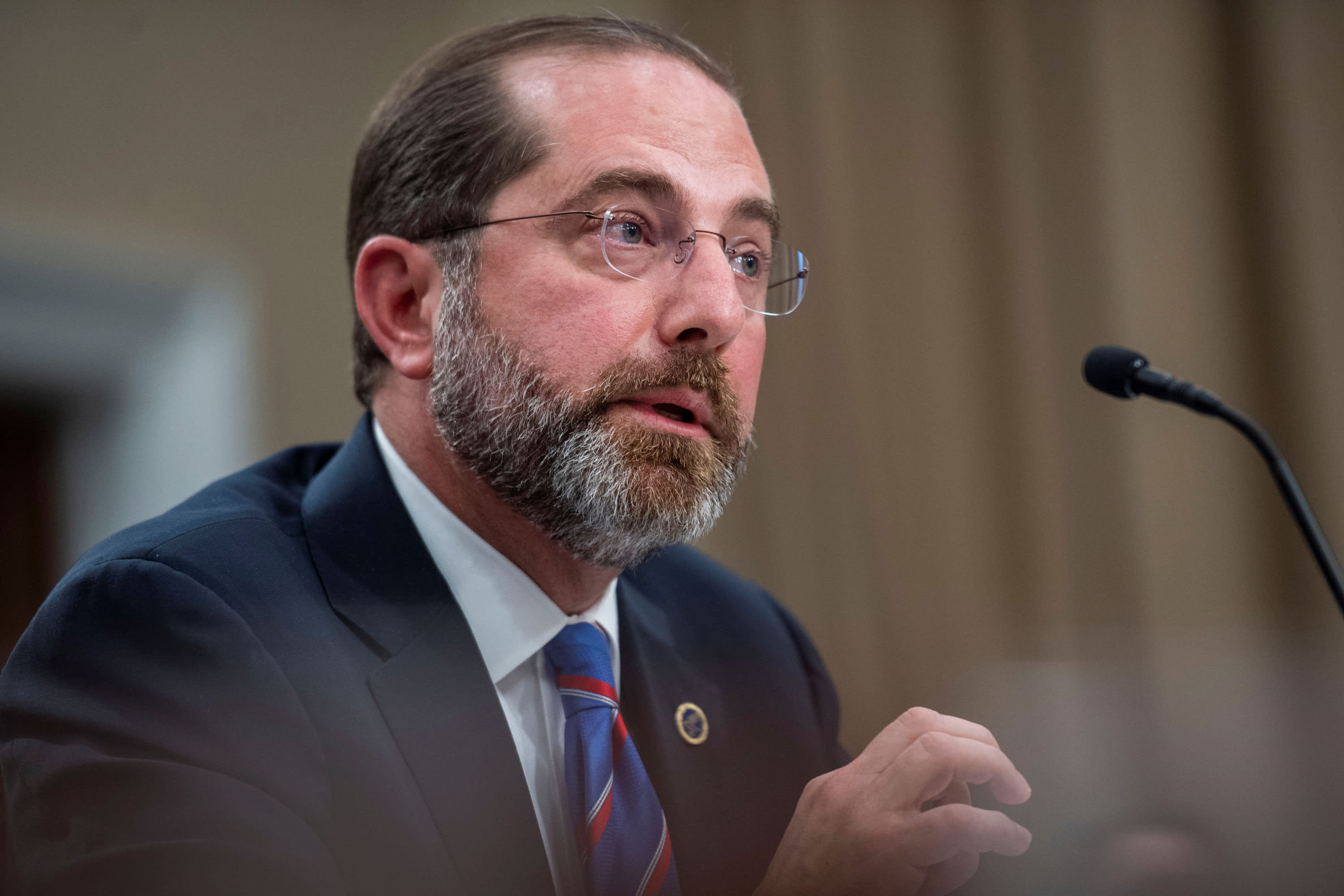Secretary of Health and Human Services Alex Azar speaks during a House Appropriations Subcommittee hearing in Washington, February 26, 2020.
Amanda Voisard | Reuters
Allowing the coronavirus to circulate through the U.S. population unchecked in an effort to achieve herd immunity is not the government’s plan, Health and Human Services Secretary Alex Azar said, despite reports that White House coronavirus advisor Dr. Scott Atlas has pushed the idea.
“Herd immunity is not the strategy of the U.S. government with regard to coronavirus,” Azar said in response to a question from Rep. Jamie Raskin, D-Md., on Friday during a U.S. House Select Subcommittee on the Coronavirus Crisis hearing.
“We may get herd slowing of transmission as we perhaps have seen in the New York area and other concentrated areas. Our mission is to reduce fatalities, protect the vulnerable, keep coronavirus cases down to the lowest level possible,” Azar added.
Herd immunity happens when a large portion of the population becomes immune to the coronavirus, making it harder to spread, the Mayo Clinic says. It can be achieved through natural infection — when enough people are exposed to the disease and develop antibodies against it — and through vaccinations.
Most scientists think 60% to 80% of the population needs to be vaccinated or have natural antibodies to achieve herd immunity, global health experts say. However, Dr. Robert Redfield, director of the U.S. Centers for Disease Control and Prevention, told lawmakers during a hearing in late September that a majority of the nation’s population — more than 90% — remains susceptible to infection, citing recent studies.
White House coronavirus advisor Dr. Anthony Fauci has also said that letting the coronavirus spread uncontrollably in an effort to infect enough people to reach herd immunity would result in an “enormous” death toll.
Fauci, the director of the National Institute of Allergy and Infectious Diseases, pushed back on Republican Sen. Rand Paul’s recent claim that New York has achieved enough herd immunity from the coronavirus and is “no longer having the pandemic.”
Fauci said that around 22% of New York’s residents have likely been exposed to the coronavirus, under the amount needed for herd immunity.
“They got hit very badly. They made some mistakes. Right now if you look at what’s going on right now, the things that are going on in New York to get their test positivity 1% or less is because they are looking at the guidelines that we have put together from the task force of the four or five things of masks, social distancing, outdoors more than indoors, avoiding crowds and washing hands,” Fauci said.
“If everyone contracted it, even with the relatively high percentage of people without symptoms … a lot of people are going to die,” Fauci said on Aug. 13.
An HHS spokesperson was not immediately available for CNBC’s inquiry clarifying Azar’s comments on New York perhaps seeing a “herd slowing of transmission.”
Atlas, a neuroradiologist who was recently added to the White House’s coronavirus pandemic response team, has publicly contradicted Redfield’s remarks on how many people remain susceptible to the virus, a move that Fauci has called “extraordinarily inappropriate.”
“You cannot assume that we are even anywhere near herd immunity right now in the United States,” Fauci has said. “We have a long way to go to get to herd immunity.”
— CNBC’s Will Feuer contributed to this report.
